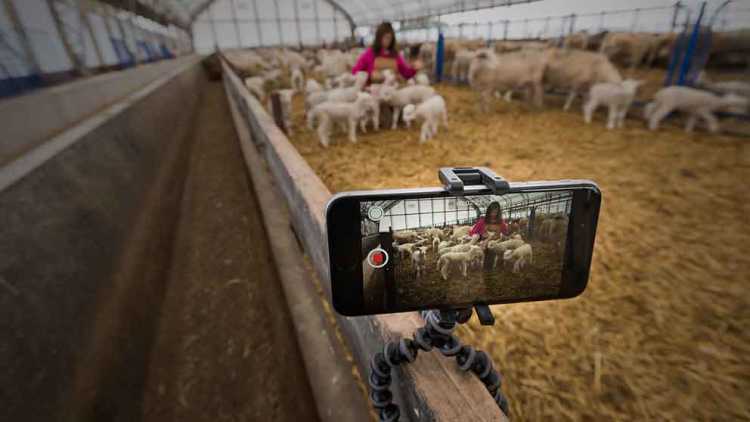Consumers are hungry for information: How to share your food story

Consumers are hungry for information, and they want it from farmers.
70% of Canadians want to know more about agriculture.
Interest in value chains and local food have steadily increased over the last several years. According to the Canadian Centre for Food Integrity, 70% of Canadians want to know more about agriculture, and producers are their preferred source of knowledge above all others.
So how do farmers mobilize that knowledge? How do they become their own public relations agent, dispel misinformation and let the public know what’s going on down the lane?
Farmers who’ve been successful at it suggest various approaches.
Use social media to show everyday farm life
Popular Guelph, Ont., dairy farmer Tim May, known widely as Farmer Tim on social media, uses platforms such as Facebook, Instagram and X to connect with the public.
His posts show everyday life on the farm – the good, like satiated cows in the pasture or a vibrant sunrise, and the bad, such as poor weather or the grief he feels when a calf dies.
If you want to set up social media platforms for your farm, consider implementing some best practices. These can be especially useful if a family member or employee posts on behalf of the farm business. Posts with the same tone or mood help reinforce the image of your farm that you want to be projected to the public.
For May, he says sharing all facets of farming makes an emotional connection with consumers.
“I wear my feelings on my sleeve, and everyone can see them,” May says. “You need to give yourself a personality and find common ground with people. They want to know you’re compassionate and that you care about your family and animals as they care about their families and pets, and they can identify with you on that level.”
May tries to publish a digital media post daily. He acknowledges that it’s a time-consuming effort; he manages by counting on the farmers among his followers to participate in his posts, to chip in and answer or elaborate on public-facing questions about production.
Start the conversation with common interests
Cash cropper Will Bergmann, who farms near Glenlea, about 30 minutes south of Winnipeg, Man., is a farmer representative for the Canola Eat Well. Ask a Farmer feature. He gets the opportunity to explain why farmers use technology and other modern practices.
“Representing a sector in this way is a great way to talk to consumers about farming,” Bergmann says.
Bergmann and his wife Jen also operate a medium-size organic community-supported agriculture (CSA) operation on the farm. They get ample opportunity to discuss organic and conventional agriculture when they deliver produce to their members, who mostly reside in Winnipeg.
“Everyone wants safe, affordable, nutritious food, so that’s a starting point for a dialogue about farming,” he says. “Once we build the relationship, we can talk with people about who and what you can trust and understand their thoughts too.”
Have consumers visit your farm – virtually or in-person
Fruit and vegetable producer Morris Gervais of Barrie Hill Farms near Springwater, Ont. is a past host of Farm and Food Care Breakfast on the Farm event, drawing thousands to his farm.
Gervais is bullish on such initiatives.
“In Ontario, we have a pretty unique opportunity to connect with consumers, with so much of the population living here, not too far away and able to come to our farms,” Gervais says.
Virtual farm tours are also popular. Farm and Food Care Ontario offers virtual farm tours across various agricultural sectors from various parts of the country on its Farm 360 website, including tours in virtual reality.
For direct-to-consumer sales, many farms across the country offer online sales with curbside pickup to connect with consumers or open small markets on their properties.
Open Farm Day, which takes place in several provinces across the country, is a chance for farmers to volunteer host the public on the farm, answer their questions and give them a taste of a day in the life of a farmer.
Want to connect with consumers? Farmers offer these ideas:
Use social media to show what happens on your farm
Start the conversation with shared interests, whether its organic foods, grass-fed livestock or food safety
Open the farm gate, whether virtually or in-person, to visitors under special circumstances

There are many types of advisors whose expertise and advice can be a valuable addition to your farm management team.
